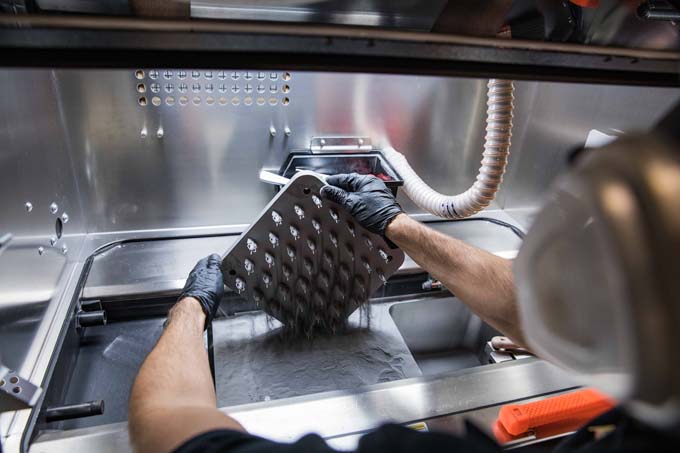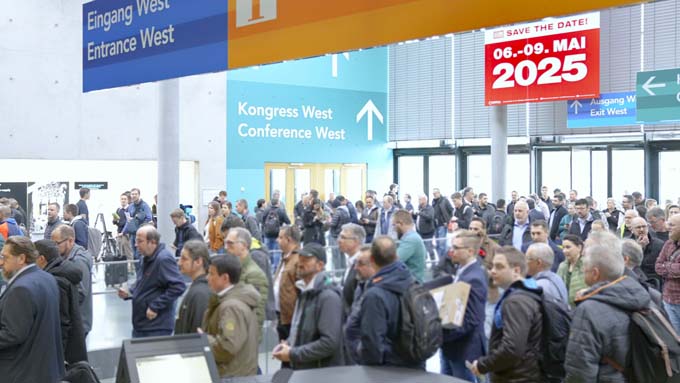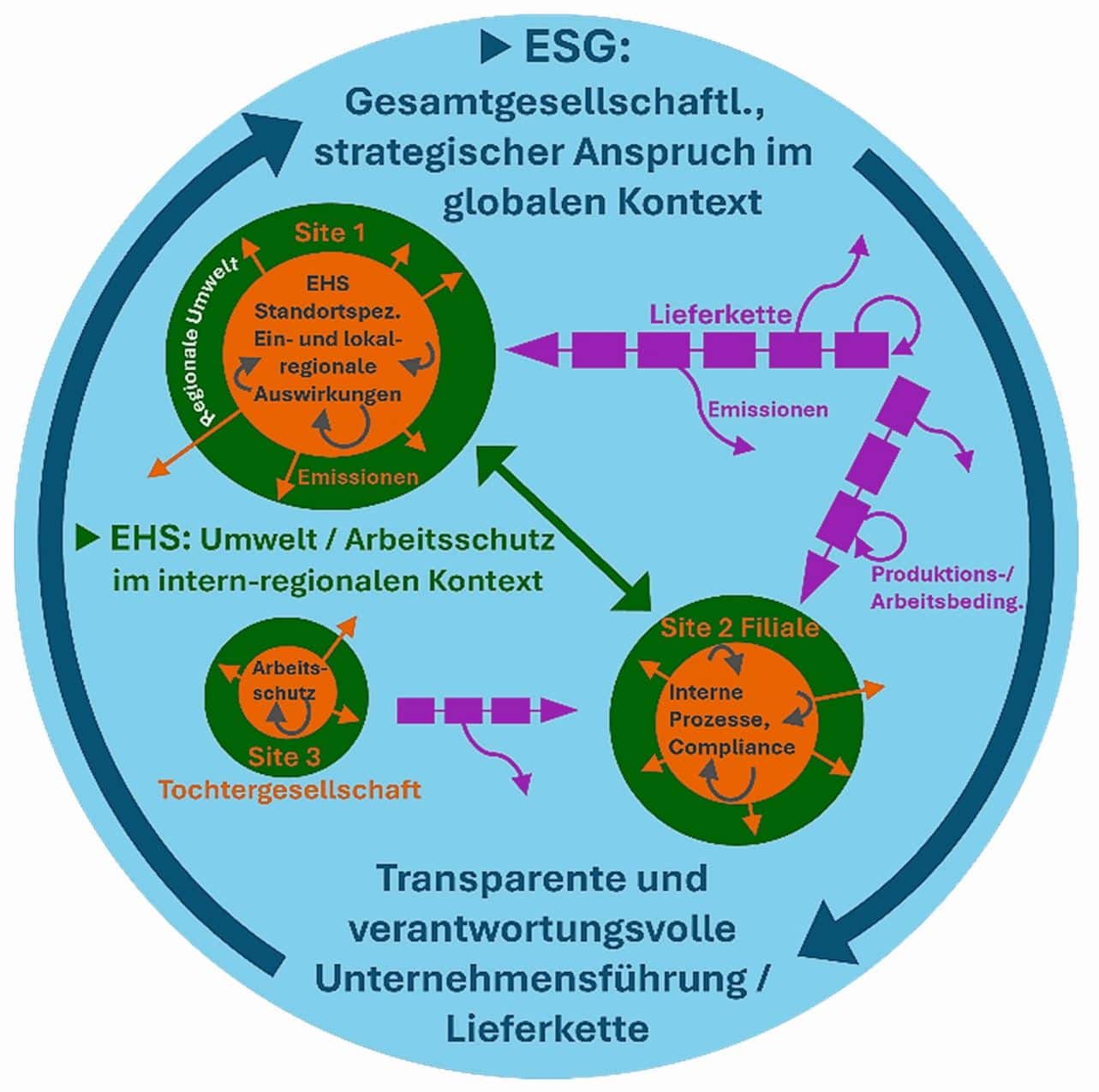Innovations in manufacturing - the most important trends for 2024
Protolabs, a manufacturing specialist, provides a year-end outlook on the key and defining manufacturing trends that the manufacturing industry can expect in the coming year.

Geopolitical tensions, ongoing supply chain disruptions, rising costs, new demands on the workforce and sustainability goals have created a sense of urgency and necessity for innovation in manufacturing over the past year and will accordingly continue to be central to future developments in 2024. At the same time, however, new technologies and manufacturing methods will also have a decisive influence on the trends of 2024 - as can also be seen from Protolabs' trend forecast.
Achieving new goals with AI & smart factories
According to Protolabs, 2024 will see the transition to smart factories with greater integration of AI, 5G, the Internet of Things (IoT), data analysis and cloud computing. Among other things, this should bring numerous benefits such as cost savings, but also an increase in product quality, safety and sustainability.
While 2023 was a record year for the implementation of 3D printers and additive manufacturing within the industry, next year the efficiency, speed and the increasing number of concrete use cases of AI will provide an additional boost for additive manufacturing. "Traditionally, additive manufacturing has been used mainly for prototyping," explains Björn Klaas, Vice President and Managing Director of Protolabs Europe. "What we are currently seeing, however, is that more and more companies are also having regular components manufactured that are ultimately installed in the finished product. Metal 3D printing and increasingly modern printing processes play a special role here - but so does the use of AI, which will continue to drive this development forward."
Decentralized operations to overcome supply chain difficulties
Another prediction that Protolabs and Björn Klaas make for the coming year is that the industry will focus more strongly on decentralized operations. Not least because manufacturing products as close as possible to their place of use offers numerous advantages, long transportation routes for parts and products can be avoided. This helps companies to overcome uncertainties in relation to the supply chain.
"Due to the fact that the varying availability of resources, specialization in individual manufacturing processes and existing established supply chains do not always make it possible to work with local facilities or suppliers, this forecast initially seems counter-intuitive," explains Björn Klaas. "However, closer cooperation with local partners enables companies to be more flexible and react more quickly to changing customer needs and market trends. Manufacturers will therefore increasingly pursue a hybrid approach in 2024, in which they can use both a central factory and a network of local facilities as required."
This trend is underpinned by The Balancing Act Report published by Protolabs in 2023, in which around 55% of manufacturers stated that they are also considering alternatives such as "friendly shoring". This refers to the relocation of supply chains and production to countries that have similar values and a similar culture to their own home country.
Side by side with cobots - the future of the workforce?
There is no doubt that AI and other technologies such as cobots are changing the way work is understood and practiced - but the Protolabs study also shows that respondents identify human creativity as a crucial element for innovation. More than half of respondents (56 percent) believe that cobots will increase employee productivity, and 57 percent say they will support better idea generation. As cobots take over repetitive and heavy tasks, employees will be able to focus on more creative aspects of their work.
"The ever-increasing shortage of skilled workers clearly shows that employees are still highly relevant for companies," explains Björn Klaas. "Companies need to adapt in order to attract and retain talent. In addition to an increased focus on greater support from cobots and robotics on the factory floor, other modern revolutions within the world of work are also approaches to shaping the production of the future."
New materials - 3D to 4D
Soft robotics and new materials will have the biggest impact on the development of manufacturing over the next five years, according to Protolabs' Robot Manufacturing Status Report 2023. Soft robotics, such as grippers that enable robots to perform more logistical tasks, are expected to grow at a compound annual growth rate of 35.1 percent between 2022 and 2027, with biomedicine, food and agriculture being the main beneficiaries. It is important to remember that the use of new materials and technologies will require additional iterations for testing and refinement, making digital manufacturing a key element in accelerating this development cycle.
New materials will also be used in shape-changing systems, also known as 4D printing. By using reactive materials that react to external influences such as heat, light, moisture, electricity or pressure, 4D-printed objects can change their shape or properties. "Numerous examples from research - but also actual areas of application - already show how revolutionary this technology is," explains Björn Klaas, Vice President and Managing Director of Protolabs Europe. "The fact that corresponding applications will become increasingly important in 2024 is therefore a trend to be reckoned with!" Examples of the development of these systems include
- Aerospace: 4D-printed drone wings that can flex up to 20 degrees in response to stimuli, significantly improving efficiency
- Medical technology: implants that adapt to a patient's body over time
- Intelligent textiles that adapt their breathability to the air humidity
- Components in a sanitary system that expand or contract in response to temperature fluctuations
Sustainability as a driver of innovation
"Sustainability continues to be a top priority in manufacturing, both in companies' processes and in the products they manufacture," explains Björn Klaas. "Industries such as aerospace, automotive and energy have regulatory targets to meet, such as net zero consumption by 2050, so much of their product development is focused on reducing carbon dioxide and integrating highly efficient technologies." Protolab's own study of 450 manufacturing executives shows that sustainability is a key driver of innovation and a key reason for manufacturers to develop new products. Digital manufacturing plays an important role in this, as it enables localized production and leads to less waste.
"Accordingly - and this can hardly be emphasized enough - sustainability is one of the most important topics for the industry in 2024 and in the years to come," concludes Björn Klaas.
Source: www.protolabs.com
This article originally appeared on m-q.ch - https://www.m-q.ch/de/innovationen-in-der-fertigung-die-wichtigsten-trends-fuer-2024/









